Text
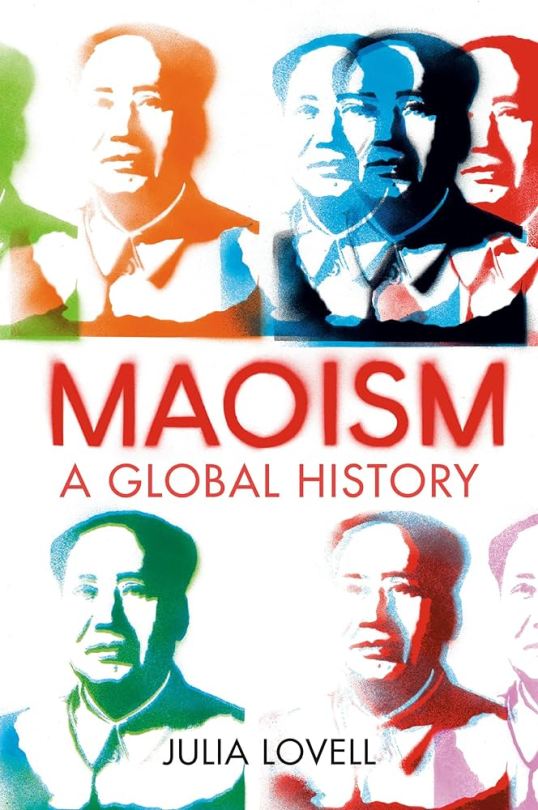
The only reason the hippies' freewheeling spirit failed to take over the world was they lacked an iron willed dictator to fuse them into a single obedient collective
459 notes
·
View notes
Text
Lamptide is this Wednesday!
Holiday Engineering: Lamptide
OK, let's put my money where my mouth is.
Lamptide is the invented-from-scratch holiday that I actually celebrate. It has its roots in a roleplaying game that I ran some years ago with @cloakofshadow and @mirror-lock, but after the game finished, I decided that I wanted to import a modified version of the festival into real life.
And it's worked very well! Or so I posit. We've had well-attended Lamptide celebrations for a couple of years running, and not only do people show up and enjoy themselves, there's a distinctive holiday spirit. The weird rites and activities do in fact happen. Which is possibly just because my friends are good sports, but...I think we're reaching the point where some version of Lamptide might well take place without me pushing it along.
As a holiday-engineering project, it's a work-in-progress. I am still tinkering with the observances, and the pieces definitely aren't yet all in place. I don't personally have the expertise to create some of the holiday stuff I'd want to create. Moreover, the population that celebrates Lamptide is still very small, and in some ways homogeneous -- mostly childless urban professional-types -- so the holiday doesn't have the context that it would need to manifest in all the forms that I imagine for it.
But I'm proud of it. And, at the least, it provides an example of what it looks like for a holiday to be built from the ground up.
Vibe. This is where I started. (Both in the RPG and in real life, actually.) In the RPG, Lamptide is an intercalary day, and like many intercalary festivals it's a weird and occult time. In real life, of course, I do not control the calendar. But even so, Lamptide is meant to have that same feel, manifesting as a carnival of spooks and revelry. To some extent, it's meant to serve as a Halloween-like that works better for me than actual Halloween does.
And much like Halloween, in theory, its core rituals can be practiced in three different "modes" depending on context. For families with kids, it's a cutesy holiday of flamboyant fun. For older kids and adolescents, it's a holiday of mischief and boundary-pushing (in a way that is, I hope, less obnoxious than the adolescent version of Halloween). For independent adults, it can be contemplative and/or literary and/or Spicy and Sexy, to taste.
Theme. In a highflown theoretical sense: Lamptide is the festival of narrative conquering material reality, of ideas and illusions becoming more-real-than-real. It is the day when you leave the sunlit world behind and walk back into Plato's cave, because our art allows us to create such beautiful shadows on the walls.
(The "lamp" of Lamptide is, notionally, the lamp whose light reveals what-is-not.)
In a more-everyday sense: Lamptide is a festival of magic.
Timing. Lamptide is observed on the spring equinox. There are a few reasons for this, some of them rooted in stuff from the RPG, but the big one is that it's almost halfway around the calendar from Halloween. I really don't want to compete with Halloween, to the extent that I can avoid it; I would lose that competition very hard. And there are enough obvious points of similarity that it's a real danger.
Early spring is also a good time for holidays generally, in the contemporary US. There's relatively little going on then, and people feel kind of festive because the worst of winter is over.
Mythology. The personification of the holiday is Father Lantern, an ogre-like character who carries a lamp. In the (notional) tales, he shines his lamp on you, and in its light you see an otherworldly version of yourself -- a creature that you could be, if you left ordinary reality behind. More prosaically, if he shows up at your doorstep and you offer him candy, he will tell you stories (or gift you with media).
Father Lantern is mostly a funny and approachable figure. He is long-winded and pretentious, in love with the sound of his own voice. But there is meant to be an edge of menace to him; he is an ogre, which means that there's always the danger that he'll just eat you, especially if you're a child. (This is not a behavior-enforcement thing -- he's not Krampus, and Lamptide is not that kind of holiday. Father Lantern's whims are inscrutable.)
I haven't yet experimented with having someone play Father Lantern, in the way that people play Santa Claus, but it's an obvious possibility.
Decorations. You put lamps and lanterns everywhere. If you can keep your celebration space lit entirely by lantern-light, that is to be commended. Silhouettes and shadow-plays are very much in the holiday spirit.
Holiday attire. Masks -- masquerade-style masks, the kind that allow people to eat and talk comfortably -- are very strongly encouraged. (When I throw Lamptide parties, this is the only thing about which I actually nudge people.) In terms of creating distinctive atmosphere, this fires on all cylinders. A space full of masked people feels otherworldly and ritualized and, well, magic. And the symbolism is super on-the-nose.
Fancy and flamboyant clothes are also encouraged.
Ritual interactions. The Lamptide tradition is to greet people with curses and maledictions. This is done in the spirit of theater superstition; it is a topsy-turvy intercalary carnival, after all. "Die in a fire" is the standard form of cheery holiday well-wishing, although you're encouraged to be creative if you're so inclined.
(Does this mostly give little kids an excuse to be gleeful about saying stuff they'd normally never be allowed to say? Maybe.)
Activities. There are two big ones.
Divination. Lamptide is a time for fortune-telling. Tarot cards are my go-to, and offering Tarot readings at Lamptide parties has proven to be a big hit, but any form of divination at all -- ranging from Actual Fucking Haruspexy to "let's ask ChatGPT about our future husbands" -- is praiseworthy. When my son was less than a year old, I had him crawl around the floor and choose Symbolically Portentous Objects like he was the infant Dalai Lama or something, and it was great.
Bribery, especially candy bribery. One of the core dynamics of a Lamptide celebration is that you walk in carrying candy, or other things that you're happy to give away, and you offer your prizes to people in exchange for them doing stuff that you want them to do. For families with little kids, this is a chance for the parents to reward their children for showing off cool skills / desired behaviors in a concrete ritual framework, and for the children to get their parents to do silly stuff. For teens, it's a structure for something that's essentially Truth or Dare with more flexibility. The applications for Spicy Sexy grownup parties are left as an exercise for the reader.
(I have thoughts about expanding the candy bribery thing into a practice of Reverse Wassailing / Trick-or-Treating, essentially, where you walk around town offering strangers candy in exchange for singing with you or otherwise doing cute harmless stuff. I haven't yet worked out exactly the right feel, though. And, well, things being how they are, you need a pretty thick social skin to be willing to offer strangers candy without a widely-accepted social framework.)
Undeveloped aspects of the holiday, which I hope to flesh out in future years:
Traditional food. We don't really have anything other than candy, right now, and it's an obvious lacuna. Lamptide isn't really a sit-down-for-a-nice-dinner kind of holiday...although I guess it could be...but I suspect it would be useful to come up with some kind of Classic Lamptide Hors d'Ouevre or Classic Lamptide Crudité or something else appropriate for a party where people are milling around doing different things. (Not a dessert, I don't want to compete with the candy.) Sadly, I have no culinary genius, so I'm going to have to outsource for this one.
Music. @cloakofshadow has written some alternate lyrics for Christmas carols, but a thriving holiday should really have its own songs with their own distinctive melodies. Which means that I should probably find a competent composer to help me out.
Gifts. It would be very In-Theme for Lamptide to be the holiday when you give people the books / movies / video games / etc. that you want them to consume for your sake. I haven't yet done anything with that idea, but I am definitely considering it strongly.
86 notes
·
View notes
Text
listen up chucklefucks, i just gotta say. I'm not defending zir, but I'm sad zie deactivated. Like, i get that trauma lasts a long time and the good stuff is maybe easy to forget?? so maybe it's just like that. And my beloved mutual @/pompeyspuppygirl made a post about zir clout chasing behavior, which is pretty shitty behavior if it's true (and if we're canceling someone it had better be pretty severe). anyways now that zie's gone pompeyspuppygirl said it was okay to make this post (again, thanks ppg everyone go follow her --really everyone in this whole drama is worth a follow)
ANYways yeah zie was my mutual and like, reblogged a lot my smaller posts. (that isn't to discredit what my mutual pompeyspuppygirl is saying about zie clout chasing ofc). AND idk zie was always reblogging art from new and undiscovered artists and reblogging donation posts (which if you don't know is really bad if you're trying to clout chase...) (again, though, ppg is my mutual i believe her.) and like, remember on valentines day i tried to blaze zir posts and zie told me to stop because zie didn't want the posts to go viral? (but again ppg is my mutual and has a lot of proof in the Google doc I'm not trying to disprove that I'm just saying what else I know)
Idk, like i feel like a lot of people loved zir's blog a while back, bc like zie DID make some good posts?? So idk why everybody's acting like they aren't even a little bit sad.,. like ngl this feels like maybe all the reasonable people left to Twitter and all the Twitter refugees who love drama came here??? shdfhhdhdhdhdh haha but idk...look idk, i just, julie i do miss you. idk. more thoughts later sorry I'm getting worked up shshs
5K notes
·
View notes
Text
Half the plot of book 1 is Gideon being bad at kayfabe
It's criminal that Gideon Nav was so clearly born to be a professional wrestler and is forced to be a sad corpse girl instead. She's meant to be a gleeful heel! Her natural habitat is performing in front of a crowd by pinning women to the mat in suggestive poses! She goes right into kayfabe in GtN and stays in it like a pro! That girl should be posting gym locker room thirst traps for the insta lesbians and she's fighting zombies instead, it's an injustice.
5K notes
·
View notes
Text
It was called the iPhone
transhumanist advances will probably be used first to make us faster at social media
160 notes
·
View notes
Text
With A Martyr Complex: Reading List 2023
Adapted from the annual list from @balioc, a list of books (primarily audiobooks) consumed this year. This list excludes several podcasts, but includes dramatizations and college lecture series from The Great Courses, which I consume like a parrot emotionally dependent on access to lecturers.
The Birth of Tragedy Out Of The Spirit of Music byFriedrich Nietzsche (Translated by Ian Johnston)
Death in Venice by Thomas Mann (Translated by Michael Henry Heim, Introduction by Michael Cunningham)
Financial Literacy: Finding Your Way in the Financial Markets by Connel Fullenkamp, from The Great Courses
The Dispossessed: A Novel by Ursula K. Le Guin
License to Travel: A Cultural History of the Passport by Patrick Bixby
Making History: How Great Historians Interpret the Past by Allen C. Guelzo, from The Great Courses
No Longer Human by Osamu Dazai (Translated by Donald Keene)
Cyteen by C. J. Cherryh
Narrative of the Life of Frederick Douglass: An American Slave by Frederick Douglass
Understanding Japan: A Cultural History by Mark J. Ravina, from The Great Courses
The Mountains of Mourning by Lois McMaster Bujold
What Has Passed Shall In Kinder Light Appear by Baoshu (Translated by Ken Liu)
The Other Side of History: Daily Life in the Ancient World by Robert Garland from The Great Courses
The Just City by Jo Walton
Julius Caesar by William Shakespeare
Understanding Imperial China: Dynasties, Life, and Culture by Andrew R. Wilson, from The Great Courses
Stories of Your Life and Others by Ted Chiang (Contains: Tower of Babylon, Understand, Division By Zero, Story of Your Life, Seventy-Two Letters, The Evolution of Human Science, Hell is the Absence of God, and Liking What You See.)
Great Minds of the Eastern Intellectual Tradition by Grant Hardy, from The Great Courses
By The Sword: A History of Gladiators, Musketeers, Samurai, Swashbucklers, and Olympic Champions by Richard Cohen
War in Japan: 1467-1615 by Stephen Turnbull
Yūrei: The Japanese Ghost by Zack Davisson
Nine Princes in Amber by Roger Zelazny
The Tale of Genji by Murasaki Shikibu (Translated by Dennis Washburn)
Buddhism by Malcolm David Eckel, from The Great Courses
The Rise of Modern Japan by Mark Ravina, from The Great Courses
The Shogun's Last Samurai Corps: The Bloody Battles and Intrigues of the Shinsengumi by Romulus Hillsborough
Convenience Store Woman by Sayaka Murata, (Translated by Ginny Tapley Takemori)
Spring Snow by Yukio Mishima (Translated by Michael Gallagher)
Child of God by Cormac McCarthy
The Rise of Communism: From Marx to Lenin by Vejas Gabriel Liulevicius, from The Great Courses
Communism in Power: From Stalin to Mao by Vejas Gabriel Liulevicius, from The Great Courses
Common Sense by Thomas Paine
The Hunchback of Notre Dame by Victor Hugo (Translated by Isabel F. Hapgood)
Cycles of American Political Thought by Joseph F. Kobylka, from The Great Courses
Docile by K. M. Szpara
Writing Great Fiction: Storytelling Tips and Techniques by James Hynes, from The Great Courses
Giovanni's Room by James Baldwin
Hart's Hope by Orson Scott Card
Real Service by Raven Kaldera and Joshua Tenpenny
The Divine Comedy by Dante Alhigieri (Translated by Clive James)
Dante's Divine Comedy by William R. Cook and Ronald B. Herzman from The Great Courses
Ancillary Justice by Ann Leckie
Secrets of The Occult by Richard B. Spence (From the Great Courses, possibly?)
A Deadly Education by Naomi Novik
American Monsters by Adam Jortner from The Great Courses
The Last Graduate by Naomi Novik
Praetorian: The Rise and Fall of Rome's Imperial Bodyguard byGuy de la Bédoyère
The Golden Enclaves by Naomi Novik
Great World Religions: Hinduism by Mark W. Muesse, from The Great Courses
At The Mountains of Madness by H. P. Lovecraft
The Case of Charles Dexter Ward by H. P. Lovecraft
The Dream-Quest of Unknown Kadath by H. P. Lovecraft
The Dunwich Horror by H. P. Lovecraft
The Shadow Out of Time by H. P. Lovecraft
The Shadow Over Innsmouth by H. P. Lovecraft
The Whisperer in Darkness by H. P. Lovecraft
The Complete Fiction of H. P. Lovecraft by H. P. Lovecraft (Collected by The H. P. Lovecraft Historical Society, contains: The Alchemist, At the Mountains of Madness, Azathoth, The Best in the Cave, Beyond the Wall of Sleep, The Book, The Call of Cthulhu, The Case of Charles Dexter Ward, The Cats of Ulthar, Celephais, The Colour out of Space, Cool Air, Dagon, The Descendent, Discarded Draft of "The Shadow Over Innsmouth," The Doom that Came to Sarnath, The Dream-Quest of Unknown Kadath, The Dreams in the Witch House, The Dunwich Horror, The Evil Clergyman, Ex Oblivione, Facts Concerning the Late Arthur Jermyn and His Family, The Festival, From Beyond, The Haunter of the Dark, He, Herbert West-Reanimator, History of the Necronomicon, The Horror at Red Hook, TheHound, Hypnos, Ibid, In the Vault, The Little Glass Bottle, The Lurking Fear, Memory, The Moon-Bog, The Music of Erich Zann, The Mysterious Ship (Long and Short Versions), The Mystery of the Grave-Yard, The Nameless City, Nyarlathotep, Old Bugs, The Other Gods, The Outsider, Pickman's Model, The Picture in the House, Polaris, The Quest of Iranon, The Rats in the Walls, A Reminiscence of Dr. Samuel Johnson, The Secret Cave, The Shadow out of Time, The Shadow Over Innsmouth, The Shunned House, The Silver Key, The Statement of Randolph Carter, The Strange High House in the Mist, The Street, Sweet Ermengarde, The Temple, The Terrible Old Man, The Thing on the Doorstep, Through the Gates of the Silver KeyThe Tomb, The Transition of Juan Romero, The Tree, Under the Pyramids, The Unnamable, The Very Old Folk, What the Moon Brings, The Whisperer in Darkness, The White Ship)
Pride and Prejudice by Jane Austen
Patton: The Man Behind The Legend, 1885-1945 by Martin Blumenson
Piranesi by Susanna Clarke
One Billion Americans: The Case for Thinking Bigger by Matt Yglesias
Red: A History of the Redhead by Jacky Colliss Harvey
The Man Who Laughs by Victor Hugo (Translated by Isabel Florence Hapgood)
The Rape of the Mind: The Psychology of Thought Control, Menticide, and Brainwashing by Joost A. M. Meerloo
The Traitor Baru Cormorant by Seth Dickinson
Legacies of Great Economists by Timothy Taylor from The Great Courses
Incomplete books: Trouble on Triton, Comparative Hell: Arts of Asian Underworlds, Dark Archives, The History of the World: Map by Maps, The Iliad (Emily Wilson Translation), Christina Queen of Sweden: The Restless Life of a European Eccentric, The Three Musketeers, The Only Plane in the Sky, Myth in Human History, The Dragon: Fear and Power
---
Great Courses consumed: 17?
Non-Great Courses Nonfiction consumed: 13
---
Works consumed by women: 13
Works consumed by men: 53
Works consumed by men and women: 0
Works that can plausibly be considered of real relevance to foreign policy (including appropriate histories): 7
---
With A Martyr Complex’s Choice Award, fiction division: Convenience Store Woman
>>>> Honorable mention: Hart's Hope, Ancillary Justice, Child of God, No Longer Human, Piranesi, the first 1/3 of Cyteen, What Has Passed Shall in Kinder Light Appear
With A Martyr Complex’s Choice Award, nonfiction division: By The Sword
>>>> Honorable mention: The Shogun's Last Samurai Corps, Praetorian, The Birth of Tragedy most of the Great Courses stuff I got to this year
>>>> Great Courses Division: Buddhism
The Annual “An Essential Work of Surpassing Beauty that Isn’t Fair to Compare To Everything Else” Award: The Divine Comedy
>>>> Honorable mention: Julius Caesar, The Dream-Quest of Unknown Kadath, The Shadow Out of Time, Pride and Prejudice, The Hunchback of Notre Dame, The Man Who Laughs, The Dispossessed
The “Reading This Book Will Give You Great Insight Into The Way I See The World” Award: What Has Passed Shall In Kinder Light Appear
>>>> Honorable mention: Hell is the Absence of God (from Stories of Your Life and Others)
The "My Mind is Thoroughly Exhausted By Reading Through All This But It Was Worth It In The End" Award: The Tale of Genji
Book Most in Need of A Single Extra Chapter: The Man Who Laughs
Best Dude: Darcy from Pride and Prejudice
---
This is the first year where I didn't struggle to reach my 52 book goal at all, only some of which is thanks to the Lovecraft marathon. I also read a ton of short sci-fi stories early in the year for an online class I took (which is also why there are so many sci-fi novels in the beginning of the year) and feel much more knowledgeable in the genre even though I'm still not very well read in it. I will be taking a fantasy course next year to what I assume will be similar effect.
It's still hard to read non-audiobooks, made worse this year by a promotion at work that means I have much less free time overall but still a fair deal of time for audiobooks while working with my hands. My (I don't post it) movie list suffered similarly, with this being the first year in a while I didn't hit my movie target.
Not discussed: I read various comics this year! Standouts: Chainsaw Man Part 1, the first volume of Pluto, Fun Home, the fifth volume of Phoenix, Look Back
Goals for next year: more foreign policy reading, more literary fiction, write something of my own, ohgodthesearethesamegoalsaslastyearpleasetellmeI'mnotstagnating
4 notes
·
View notes
Text
Introduction
Inspired by Dracula Daily, I've put together a substack called Les Mis Letters. The brick has a total of 365 chapters, and every day in 2023 I'm going to email one out (mostly as a way to make myself read the book.)
The first email (the preface) will go out New Years Eve of 2022
If anyone has any suggestions for catchier names, I'm happy to hear them
FAQ
988 notes
·
View notes
Text
BALIOC’S READING LIST, 2022 EDITION
With one exception, this list counts only published books, consumed in published-book format, that I read for the first time and finished. (There was one serious-seeming book that, as far as I know, exists only in free-floating PDF form.) No rereads, nothing abandoned halfway through, no Internet detritus of any kind apart from the aforementioned, etc. Also no children’s picture books.
1. The Blue Castle, Lucy Maude Montgomery
2. The Art of Gathering: How We Meet and Why It Matters, Priya Parker
3. The Girl and the Mountain, Mark Lawrence
4. There Is No Antimemetics Division, qntm
5. Dreamsnake, Vonda N. McIntyre
6. War and State Building in Medieval Japan, Various (ed. John A. Ferejohn and Frances McCall Rosenbluth)
7. Legal Systems Very Different From Ours, David Friedman, Peter T. Leeson, and David Skarbek
8. The Revolutions, Felix Gilman
9. Age of Ash, Daniel Abraham
10. When the Sea Turned to Silver, Grace Lin
11. Summer in Orcus, T. Kingfisher
12. The Thousand Eyes, A. K. Larkwood
13. Kingfall, David Estes
14. Surrogation, Suspended Reason
15. The Hands of the Emperor, Victoria Goddard
16. The Remains of the Day, Kazuo Ishiguro
17. Hakkenden -- Part 1: "An Ill-Considered Jest," Kyokutei Bakin
18. Claws of the Cat, Susan Spann
19. Blade of the Samurai, Susan Spann
20. Flask of the Drunken Master, Susan Spann
21. The Ninja's Daughter, Susan Spann
22. Betrayal at Iga, Susan Spann
23. Trial at Mount Koya, Susan Spann
24. Ghost of the Bamboo Road, Susan Spann
25. Fires of Edo, Susan Spann
26. The Discord of Gods, Jenn Lyons
27. All the Seas of the World, Guy Gavriel Kay
28. Don Rodriguez: Chronicles of Shadow Valley, Edward Plunkett, Lord Dunsany
29. Streets of Gold: America's Untold Story of Immigrant Success, Ran Abramitzky and Leah Bousyan
30. Harrow the Ninth, Tamsyn Muir
31. Perhaps the Stars, Ada Palmer
32. Dreadgod, Will Wight
33. Lamb: The Gospel According to Biff, Christ's Childhood Pal, Christopher Moore
34. Manfred, George Gordon, Lord Byron
35. Friend to Mankind: Marsilio Ficino (1433-1499), Various (ed. Michael Shepherd)
36. Locklands, Robert Jackson Bennett
37. The Jade Setter of Janloon, Fonda Lee
38. Spring Snow, Yukio Mishima
39. Against All Gods, Miles Cameron
40. Nona the Ninth, Tamsyn Muir
41. Slouching Towards Utopia: An Economic History of the Twentieth Century, J. Bradford DeLong
42. The Golden Enclaves, Naomi Novik
43. The Rise of the Dragon: An Illustrated History of the Targaryen Dynasty, Vol. I, George R. R. Martin, Elio M. Garcia Jr., and Linda Antonsson
44. A Garter as a Lesser Gift, Aster Glenn Gray
45. The Night-Bird's Feather, Jenna Moran
46. Absolution by Murder, Peter Tremayne
47. The Lost Metal, Brandon Sanderson
48. Shroud for the Archbishop, Peter Tremayne
49. Yamada Monogatari: Demon Hunter, Richard Parks
50. Yamada Monogatari: To Break the Demon Gate, Richard Parks
51. Yamada Monogatari: The War God's Son, Richard Parks
52. Yamada Monogatari: The Emperor in Shadow, Richard Parks
53. Pulling the Wings off Angels, K. J. Parker
54. Laurus, Eugene Vodolazkin
55. The Ogre's Wife: Fairy Tales for Grownups, Richard Parks
56. The Dream of a Ridiculous Man, Fyodor Dostoevsky
Plausible works of improving nonfiction consumed in 2021: 7
[“plausible” and “improving” are being defined very liberally here]
Works written by women consumed in 2021: 23
Works written by men consumed in 2021: 29
Works written by both men and women consumed in 2021: 4
Balioc’s Choice Award, Fiction Division: The Remains of the Day
>>>> Honorable Mention: Laurus
Balioc’s Choice Award, Nonfiction Division: Slouching Towards Utopia: An Economic History of the Twentieth Century
>>>> Honorable Mention: War and State Building in Medieval Japan
Series Award for: A Deeply Flawed Work of Luminescent Genius, No Really, This Thing is Artistically and Intellectually Important and Its Flaws Only Make It More So, Dear God What Were They Thinking Not Giving It the Hugo -- the Terra Ignora books, by Ada Palmer
Series Award for: I Cannot Begin to Articulate How Mad I Am That These Books of All Books Have Become Cultural Touchstones of My Local Social and Artistic Circle -- the Locked Tomb books, by Tamsyn Muir
Series Award for: I Must Give Credit to a Brave Author Who Makes Unexpected Moves and Tries New Things with Every Book, Even if Everything She Tries is Terrible -- the Locked Tomb books, by Tamsyn Muir
**********
Fiction-wise, this was actually a better year than you'd think from just eyeballing the list. The overall numbers are still below par, and there's too much shlocky formulaic mystery-series-type stuff; but there was a lot of real quality in there. I had real trouble deciding on my top two, and I ended up not giving either prize to a book by Jenna Moran writing at her normal level of quality, so that says something. There were a number of books that disappointed by not being amazing but that I'm still glad to have read (e.g. Summer in Orcus, The Hands of the Emperor). Even the shlocky formulaic stuff had more merit than you might expect, in many cases.
Serious contemplatively-emotional litfic is real good, at its best. Turns out.
Non-fiction-wise, this was a shitshow of unparalleled proportions. I read almost nothing, and what I read was uninspiring. (I started s number of things that I failed to finish, which didn't help.) I seriously considered making this a "no award" year. I am once again asking for your recommendations for really good, deeply-informative, blow-your-mind-open non-fiction.
24 notes
·
View notes
Text
With A Martyr Complex: Reading List 2022
Adapted from the annual list from @balioc, a list of books (primarily audiobooks) consumed this year. This list excludes several podcasts, but includes dramatizations and college lecture series from The Great Courses, which I consume like a disgusting fiend.
Introduction to the Qur'an by Martyn Oliver with Tahera Ahmad (for Quranic recitation)
Conquistadors by Michael Wood
ROAR: How to Match Your Food and Fitness to Your Unique Female Physiology for Optimum Performance, Great Health, and a Strong, Lean Body for Life by Stacy Sims and Selene Yeager
The Guns of August by Barbara W. Tuchman
War, Peace, and Power: Diplomatic History of Europe 1500-2000 by Vegas Gabriel Liulevicius
This Is How You Lose The Time War by Amal El-Mohtar and Max Gladstone
Coup de Grâce: A Novel by Marguerite Yourcenar (Translated by Grace Fick)
Sun and Steel by Yukio Mishima (Stanford Press Translation)
Classical Mythology by Elizabeth Vandiver
Metamorphoses by Ovid (Translated by Frank Justus Miller)
Existential Kink: Unmask Your Shadow and Embrace Your Power (A method for getting what you want by getting off on what you don't) by Carolyn Elliott
Fascism: A Warning by Madeline Albright
The Enlightenment Invention of the Modern Self by Leo Damrosch
Greek Tragedy by Elizabeth Vandiver
Leviathan or The Matter, Forme and Power of a Commonwealth Ecclesiaticall and Civil by Thomas Hobbes
War Is a Force That Gives Us Meaning by Chris Hedges
Natural Law and Human Nature by Father Joseph Koterski
Odysseus in America: Combat Trauma and the Trials of Homecoming by Jonathan Shay (Foreward by John McCain and Max Cleland)
We by Yevgeny Zamyatin (Translated by Clarence Brown)
Treason by Orson Scott Card (Originally published as A Planet Called Treason)
The Modern Political Tradition: Hobbes to Habermas by Lawrence Cahoon
Gideon The Ninth by Tamsyn Muir
Discipline and Punish by Michel Foucault (Translated by Alan Sheridan)
Harrow The Ninth by Tamsyn Muir
History of Sexuality: Volume I by Michel Foucault (Unidentified Translator)
Madness and Civilization by Michel Foucault (Translated by Richard Howard)
Lent: A Novel of Many Returns by Jo Walton
Living the French Revolution and the Age of Napoleon by Suzanne M. Desan
The Stranger by Albert Camus (Translated by Matthew Ward)
10 Women Who Ruled The Renaissance by Joyce Salisbury
A Brief History of the Samurai by Jonathan Clements
Because Internet: Understanding The New Rules of Language by Gretchen McCulloch
The Sailor Who Fell From Grace With The Sea by Yukio Mishima
The Republic by Plato (Translated by Benjamin Jowett)
Nona The Ninth by Tamsyn Muir
Davos Man: How The Billionaires Devoured The World by Peter S. Goodman
The Birth of The Modern Mind: The Intellectual History of the 17th and 18th Centuries by Alan Charles Kors
(Spooky) Litigation: The Practice of Supernatural Law (Volume 1) by Jeffrey A. Rapkin
Emperors of Rome by Garrett G. Fagan
The Exorcist by William Peter Blatty
Francis of Assisi by Ronald B. Herzman and William R. Cook
Impact Winter by Travis Beacham
Popes and The Papacy: A History by Thomas X. Noble
Misery by Stephen King
The Benedict Option by Rod Dreher
The Aeneid by Virgil (Translated by John Dryden)
The Aeneid of Virgil by Elizabeth Vandiver
The Industrial Revolution by Patrick N. Allitt
[Redacted] by [Redacted]
The Count of Monte Cristo by Alexandre Dumas (Translated by Duke Classics)
America and the World: A Diplomatic History by Mark A. Stoler
The Stars My Destination by Alfred Bester
Hagakure by Yamamoto Tsunetomo (Translated by William Scott Wilson)
A Memory Called Empire by Arkady Martine
Voltaire and The Triumph of The Enlightenment by Alan Charles Kors
Crime and Punishment by Fyodor Dostoevsky (Translated by Constance Garnett)
Incomplete books: Jacques the Fatalist, The Just City, On Killing
---
Great Courses consumed: 17
Non-Great Courses Nonfiction consumed: 16
---
Works consumed by women: 17
Works consumed by men: 37
Works consumed by men and women: 2
Works that can plausibly be considered of real relevance to foreign policy (including appropriate histories): 10
---
With A Martyr Complex’s Choice Award, fiction division: It’s a tie between Lent and Coup de Grace, I just couldn’t decide between the two. Feel free to mock me for my indecision.
>>>> Honorable mention: The Stars My Destination, Misery
With A Martyr Complex’s Choice Award, nonfiction division: The Guns of August
>>>> Honorable mention: Living the French Revolution and The Age of Napoleon, Greek Tragedy, Conquistadors, The Aeneid of Virgil
>>>> Great Courses Division: The Birth of the Modern Mind: The Intellectual History of the 17th and 18th Centuries
The Annual “An Essential Work of Surpassing Beauty that Isn’t Fair to Compare To Everything Else” Award: We
>>>> Honorable mention: Crime and Punishment (This may have suffered from me reading while quarantining, I could easily have swapped it with We under other circumstances)
>>>> Nonfiction Division: Leviathan
>>>>>>>>Honorable Mention: Discipline and Punish
The “Reading This Book Will Give You Great Insight Into The Way I See The World” Award: War is a Force That Gives Us Meaning
>>>> Honorable mention: The Sailor Who Fell From Grace With The Sea, Leviathan
The “This is Kooky Made Up Nonsense But Still Worth Checking Out” Award: Existential Kink
The “Reading This has Allowed Me To Stop Caring About Its Author Too Much” Award: The Benedict Option
---
This marks the first year where I’ve reached my goal of at least 1 book per week for the year, and I’m reasonably proud of that. I’m especially proud that I didn’t overload the list with short works to reach that goal and was able to tackle some difficult or long works while maintaining a solid pace. I did find myself reading fewer literary works than I tend to prefer, and my nonfiction that wasn’t lectures was lower than I’d generally like (however much I do love lectures).
Goals for next year: more foreign policy reading, more literary fiction, write something of my own.
6 notes
·
View notes
Text
For those of you who are at all interested in, or curious about, theater LARPing --
Paracelsus Games is currently giving away, for free, a game called Debrief. It's Cold War espionage with ghosts and spirit mediums, and a heavy dose of Feelings.
Debrief is pretty much the maximally-convenient, maximally-accessible theater game. It's a two-player LARP, it lasts for just one hour, and it's meant to be played online (over Zoom or some comparable software). And it is, I think, quite good.
If you know anyone at all who might want to give it a shot with you, I recommend checking it out.
You can find it here.
28 notes
·
View notes
Text
It is no coincidence that, in so many ways, the cheesecake factory resembles a cheesecake prison
7K notes
·
View notes
Text
[thinks about cu chulainn for more than 2 seconds and has to drop everything to go post right now immediately] the one part of the tain bo cuailnge that absolutely never fails to get me fucked up is the events surrounding the death of the boy troops. if you ask me this is the absolute most defining moment for cu chulainn as character. he’s been fighting entire armies on his own nonstop for months on end until finally he falls asleep from exhaustion for three days straight. but while he is asleep ulster is defenseless, and the boy troops step in to fight while cu chulainn can’t, and every single one of them is slaughtered mercilessly. when cu chulainn wakes up he feels reinvigorated. a demigod hero, miraculously healed with his divine father’s help, ready to jump into the fray once more. but when he asks the first person he sees what happened while he was asleep and learns of the death of the boy troops, for a moment he’s not a great hero, he’s a teenager and one hundred and fifty of his peers died in his name because he really, really needed a brief break from being a hero. and for just a moment he clings to this nameless faceless warrior and asks him to come along, to help him avenge this tragedy and make up for his failure, for just a split second he’s not a hero, he’s just a kid in over his head who doesn’t know if he can do this anymore.
but the warrior says no, you are still ulster’s greatest hero. there would be no point to me joining you, you do not need my help. in kinsella’s tain it’s my absolute favourite passage which is why it’s my blog description because i literally think about it every single day. “Onward, Little Hound; there is no stain on your good name, no slight on your courage.”[…]“No matter what deeds of craft or courage a man does in your company the glory and fame and name go to you, not to him. So I will not stay. Go bravely against the army by yourself. They have no power over your life at this time.” there is no shame in your human limits, no doubt of your capabilities as hero, so the only one who decides whether you still remain a hero after this is you. and with that cu chulainn indeed decides to go against the opposing army by himself, to unleash all his grief and rage on them as he explodes into a mass of violence unlike any before or since, building walls of corpses in bloody retribution.
but before doing so he takes the time to gear up and ensure that he won’t lose himself in that grief and rage and bloodlust. he does not ride out against connacht as impulsive emotional response, he rides out with intent and purpose, to show exactly what kind of hero’s wrath they made the mistake of incurring. cu chulainn was prophecied to be a hero and has filled that role splendidly until now, but for a brief moment he was human, and in that moment he chose to become a hero once more. even if he is to become a monster, he makes sure that afterwards he will be able to become a hero once more. because someone out there, doesn’t matter who, had faith that cu chulainn is indeed a hero.
556 notes
·
View notes
Text
Some years ago, before the pandemic, I went to see an amateur production of The 25th Annual Putnam County Spelling Bee. One of my friends had a major role, and other friends were involved with various aspects of the production, including (importantly) the staging and choreography.
This is a show in which all the characters are wearing numbered placards around their necks, because...they're spelling bee contestants. (Like this, only the version used in the show didn't have names or school info, just numbers.)
In one big splashy number -- sadly, I don't remember which -- the whole cast was onstage dancing. There were two dance captains who were doing their thing on big pillars amidst everyone else, as though to make extra-sure that all eyes were on them specifically.
The numbers around their necks were "14" and "88." In that order, left to right, if you were facing the stage.
...as I said, I knew the people responsible for the staging, and I knew that the chances that they'd deliberately put a Nazi reference in front of the audience were approximately zero point zero. So I quietly brought this up with them after the show. At which point I learned
a) that they were Not Online Enough even to recognize "1488" as a symbol once it was pointed out to them (I had to explain what it meant),
b) that they'd distributed the number placards at random, and
c) that they were very horrified to learn what they'd "done."
And that's pretty much the end of the story, insofar as there's a story. They took steps to ensure that this wouldn't happen in future performances. As far as I know, no one outside my little knot of friends even noticed.
But I couldn't shake the thought:
If any easily-offended person had noticed, if anyone had taken a picture and shared it around, these poor thespians would be toast. No one would ever believe that it had been a complete accident. It looks too much like the sort of thing that doesn't happen by coincidence...and too much like the kind of secret ideological signal for which people have been trained to look everywhere.
I think about that a lot, whenever I run into discourse concerning "obvious" dogwhistles.
231 notes
·
View notes
Text
The artist Paweł Ponichtera seems to have inexplicably dedicated a massive amount of time and effort to hyper-detailed and hyper-accurate illustrations of chinchillas engaged in historical fencing, many with clear and specific reference to particular historical treatises. So, I give you:
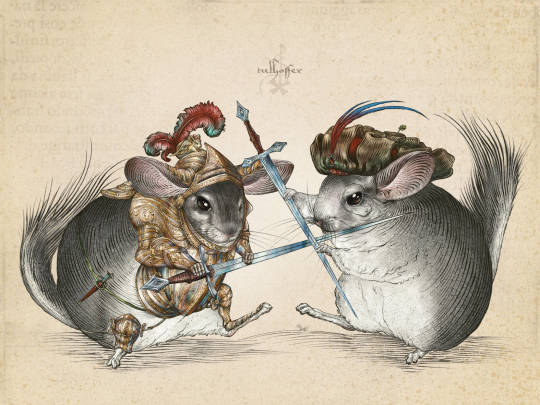
Hans Talhoffer Chinchillas
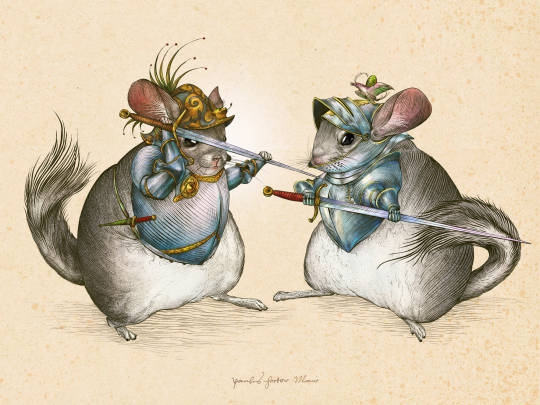
Harnisfechten Chinchillas
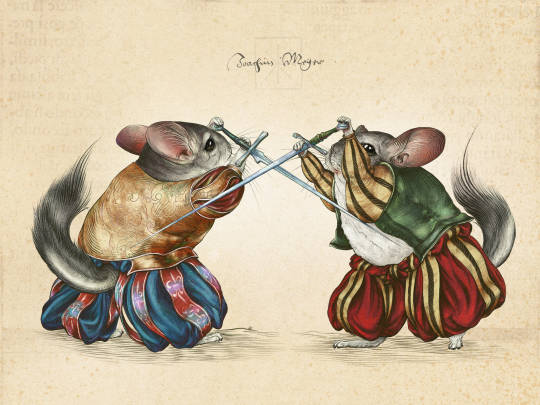
Joachim Meyer Longsword Chinchillas
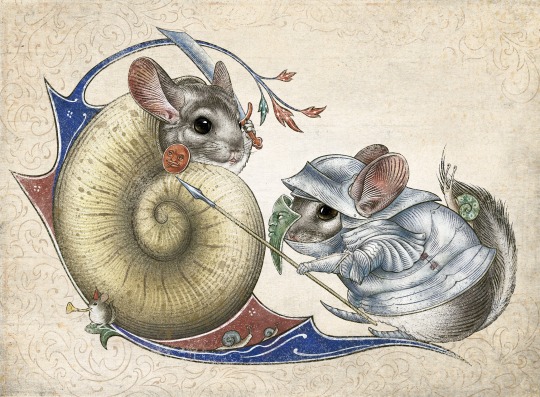
Fantastical Snail Marginalia Chinchillas
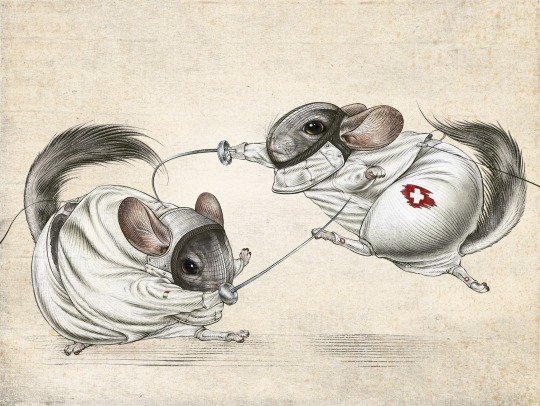
Olympic Epee Chinchillas
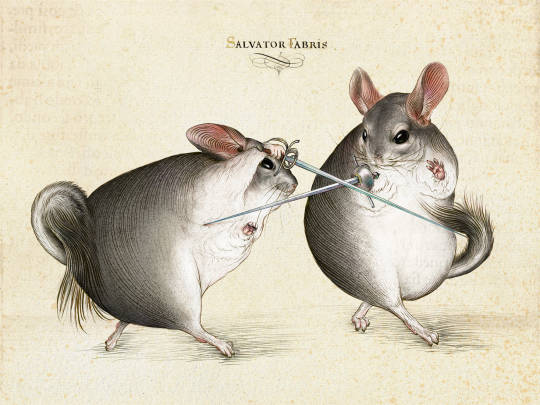
Salvator Fabris Rapier-in-the-Nude Chinchillas
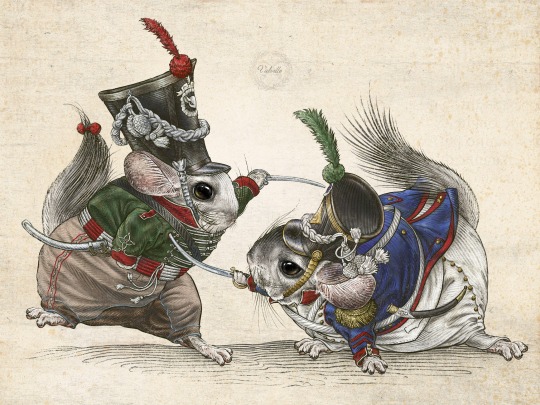
Napoleonic Saber Chinchillas
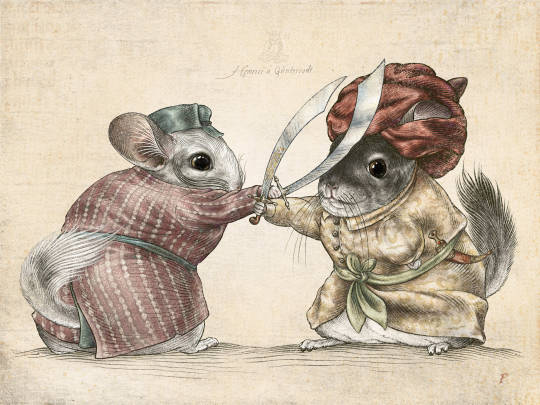
Arabic Shamshir Chinchillas
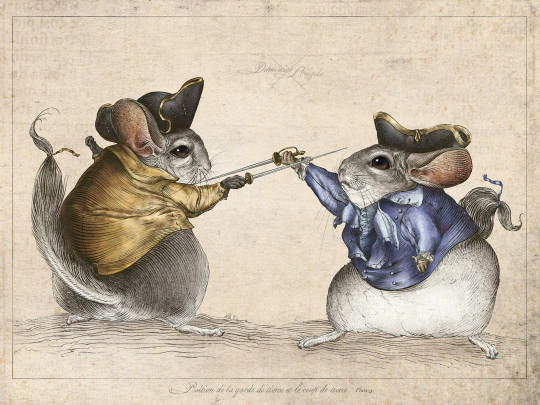
18th Century Smallsword Chinchillas

I.33 Sword and Buckler Chinchillas
39K notes
·
View notes
Text
The trick here is that Mycroft's comparison here is recapturing the classical comparison between the masculine, warrior beauty of Achilles and the androgynous beauty of Paris who fights more distantly. I hope I don't need to spell out which one is the androgyne who fights from far away and which is Achilles.
no one:
literally no one:
truly, absolutly nobody at all:
Mycroft Canner: …Sniper, who had the most flawless human physique on the planet… except for this animated toy soldier, because HIS muscles were formed by REAL WAR and HARDSHIP instead of FAKE GYMS
22 notes
·
View notes
Text
With A Martyr Complex: Reading List 2021
Adapted from the annual list from @balioc, a list of books (primarily audiobooks) consumed this year. This list excludes several podcasts, but includes dramatizations and college lecture series from The Great Courses, which I consume like a disgusting fiend.
Postwar: A History of Europe Since 1945 by Tony Judt
Utopia by Thomas More
The Prophet by Kahlil Gibran
The Protestant Ethic and The Spirit of Capitalism by Max Weber (tl: Talcott Parsons)
1177 B.C.: The Year Civilization Collapsed by Eric H. Cline
Achilles in Vietnam: Combat Trauma and the Undoing of Character by Jonathan Shay
Understanding the Dark Side of Human Nature by Daniel Breyer
On China by Henry Kissinger
The Code Breaker: Jennifer Doudna, Gene Editing, and the Future of the Human Race by Walter Isaacson
Down and Out in Paris and London by George Orwell
Iliad by Homer (tl: W. H. D. Rouse)
The Iliad of Homer by Elizabeth Vandiver
The City of Brass by S. A. Chakraborty
The Prince by Niccolo Machiavelli
Machiavelli in Context by William R. Cook
Death in Florence: The Medici, Savonarola and the Battle for the Soul of the Renaissance City by Paul Strathern
The Borgias: The Hidden History by G. J. Meyer
Rise and Fall of The Borgias by William Landon
The Borgias and Their Enemies by Christopher Hibbert
War and World History by Jonathan P. Roth
The Medici by Paul Strathern
Invisible Cities by Italo Calvino
The Art of War by Niccolo Machiavelli
The Venetians by Paul Strathern
Wyrms by Orson Scott Card
Perhaps The Starsby Ada Palmer
Odyssey by Homer (tl: W. H. D. Rouse)
The Odyssey of Homer by Elizabeth Vandiver
The Lost Books of The Odyssey by Zachary Vance
A History of India by Michael H. Fisher
How to Achieve Financial Independence and Retire Early by JD Roth
Gilgamesh: A New English Version by Sin-Leqi-Unninni (standard ancient version), Stephen Mitchell (adaptor)
Candide: or, The Optimist-Voltaire
The Artist, The Philosopher, and The Warrior: Da Vinci, Machiavelli, and Borgia and the World They Shaped by Paul Strathern
Zadig; or, The Book of Fate by Voltaire
Justine, or The Misfortunes of Virtue by Marquis de Sade (tl: John Phillips)
America’s Founding Women by Cassandra Good
Fundamental Principles of the Metaphysics of Morals by Immanuel Kant
Incomplete books: War in Human Civilization by Azar Gat, Anna Karenina by Leo Tolstoy, The Enlightenment-The Pursuit of Happiness, 1680-1790 by Ritchie Robertson, and Leviathan by Thomas Hobbes.
---
Great Courses consumed: 8
Non-Great Courses Nonfiction consumed: 16
---
Works consumed by women: 5
Works consumed by men: 33
Works consumed by men and women: 0
Works that can plausibly be considered of real relevance to foreign policy (including appropriate histories): 6
---
With A Martyr Complex’s Choice Award, fiction division: Invisible Cities
>>>> Honorable mention: Perhaps the Stars, Wyrms
With A Martyr Complex’s Choice Award, nonfiction division: Postwar: A History of Europe Since 1945
>>>> Honorable mention: The Borgias: The Hidden History, The Iliad of Homer, Death in Florence: The Medici, Savonarola, and the Battle for the Soul of the Renaissance City, The Odyssey of Homer
>>>> Great Courses Division: Understanding the Dark Side of Human Nature
The Annual “An Essential Work of Surpassing Beauty that Isn’t Fair to Compare To Everything Else” Award: The Prince
>>>> Honorable mention: Iliad (it would have beaten The Prince in a better translation), Down and Out in Paris and London, Zadig; or, The Book of Fate, The Protestant Ethic and The Spirit of Capitalism
The “Reading This Book Will Give You Great Insight Into The Way I See The World” Award: Achilles in Vietnam: Combat Trauma and the Undoing of Character
>>>> Honorable mention: War and World History
The “Reading This Book Was Nightmarishly Awful but also Deeply Rewarding in Ways I Did Not Anticipate such that I Cannot Tell if I Recommend It or Not” Award: Justine, or The Misfortunes of Virtue
The “I Must Return to this Work with a Translation that is not Rife with Monotheism”: Iliad
Author of the Year: Paul Strathern for his many books on Italian history
Audiobook Narrator of the Year: T. Ryder Smith for Perhaps The Stars
---
I did not get close to 50 this year, partially out of getting into and becoming involved with the 2Rash2Unadvised podcast (a readthrough podcast of the Terra Ignota series, of which Perhaps The Stars is the final book), which I sometimes guest on, partially due to work things, partially due to bizarre weirdness in my life, partially due to a few long books (not all of which I finished). I’m optimistic about what I can read for much of next year. I did read a lot of history and a few books on the nature of war. Next year, I want to read more fiction and more contemporary works while keeping up the history, war, classics, and returning to foreign policy. I also hope to get more writing done.
12 notes
·
View notes
Text
BALIOC’S READING LIST, 2021 EDITION
This list counts only published books, consumed in published-book format, that I read for the first time and finished. No rereads, nothing abandoned halfway through, no Internet detritus of any kind, etc. Also no children’s picture books.
1. Lies of the Beholder, Brandon Sanderson
2. Cthulhusattva, various (ed. Scott R. Jones)
3. The Revolt of the Elites and the Betrayal of Democracy, Christopher Lasch
4. The Solitudes, John Crowley
5. On Safari in R'lyeh and Carcosa with Gun and Camera, Elizabeth Bear
6. The Mask of Mirrors, M. A. Carrick
7. The Cult of Smart, Fredrik deBoer
8. A Russian Doll & Other Stories, Adolfo Bioy Casares
9. Achilles in Vietnam: Combat Trauma and the Undoing of Character, Jonathan Shay
10. The Invention of Morel, Adolfo Bioy Casares
11. Republic of Lies: American Conspiracy Theorists and Their Surprising Rise to Power, Anna Merlan
12. Bloodline, Will Wight
13. Lammas Night, Katherine Kurtz
14. Never Knew Another, J. M. McDermott
15. Twilight of Democracy: The Seductive Lure of Authoritarianism, Anne Applebaum
16. When We Were Executioners, J. M. McDermott
17. The War on Normal People: The Truth About America's Disappearing Jobs and Why Universal Basic Income Is Our Future, Andrew Yang
18. We Leave Together, J. M. McDermott
19. The House of Always, Jenn Lyon
20. The Assassins of Thasalon, Lois McMaster Bujold
21. Darth Bane: Path of Destruction, Drew Karpyshyn
22. The Shadow of the Sword: The Birth of Islam and the Rise of the Global Arab Empire, Tom Holland
23. The Maidens, Alex Michaelides
24. The Desert Fathers: Sayings of the Early Christian Monks, Various (ed. Benedicta Ward)
25. Hawkwood's Sword, Christian Cameron
26. The Dying Earth, Jack Vance
27. The Eyes of the Overworld, Jack Vance
28. The Most Holy Trinosophia, the Comte de Saint Germain (ed. P. Manly Hall)
29. Cugel's Saga, Jack Vance
30. Rhialto the Marvellous, Jack Vance
31. Fuzz: When Nature Breaks the Law, Mary Roach
32. Strange Beasts of China, Yan Ge
33. Songs of the Dying Earth: Stories in Honor of Jack Vance, Various (ed. George R. R. Martin & Garner Duzois)
34. The Dragon Waiting, John M. Ford
35. An Unclean Legacy, Jenna Moran
36. The Girl and the Stars, Mark Lawrence
37. The Vicomte de Bragelonne, Alexandre Dumas
38. Ten Years After, Alexandre Dumas
39. Louise de la Vallière, Alexandre Dumas
40. The Man in the Iron Mask, Alexandre Dumas
41. Reaper, Will Wight
42. Where the Mountain Meets the Moon, Grace Lin
43. Princes and Poisoners: Studies of the Court of Louis XIV, Franz Funck-Brentano
44. The Moon and the Sun, Vonda N. McIntyre
45. The Liar's Knot, M. A. Carrick
46. The Last Graduate, Naomi Novik
47. Knot of Shadows, Lois McMaster Bujold
48. Jade Legacy, Fonda Lee
49. Gideon the Ninth, Tamsyn Muir
50. Zadig; or, the Book of Fate, Voltaire
Plausible works of improving nonfiction consumed in 2021: 11
[“plausible” and “improving” are being defined very liberally here]
Works written by women consumed in 2021: 17
Works written by men consumed in 2021: 30
Works written by both men and women consumed in 2021: 3
Balioc's Choice Award, Fiction Division: An Unclean Legacy
>>>> Honorable Mention: The Dying Earth
Balioc’s Choice Award, Nonfiction Division: The Shadow of the Sword: The Birth of Islam and the Rise of the Global Arab Empire
>>>> Honorable Mention: The Cult of Smart
Cultural Heritage Award For "Good Job Spending Many Hundreds of Pages Painstakingly Foreshadowing and Setting Up a Plot That Will Instantly and Dramatically Go Nowhere": The Vicomte de Bragelonne et al.
Cultural Heritage Award For "Some of You Guys are Pretty All Right, Some of You are Entirely Bonkers, But All of You Have Like 1000% More Integrity and Insight than Your Contemporary Counterparts": The Desert Fathers: Sayings of the Early Christian Monks
**********
Somehow, impressively, this year was even worse for my reading habits than 2020. I didn't read nearly enough -- you'll notice a lot of very short works on that already-pretty-damn-short book list -- and, overall, the stuff I did read was much too low-quality.
(I was seriously contemplating making a couple of snarky anti-awards this year. Some of those books were bad.)
Public transit really made a difference, man.
Anyway. Onwards and upwards. I'm guessing that 2022 may continue to be pretty rough, reading-wise, but...we will do better.
I continue to seek recommendations for Really Good Reading Material. Especially recommendations for Really Good nonfiction -- stuff in the "I now feel I know something substantial and important about the world" or "I now feel like I've been shown how to see things in a whole new light" categories. Excellent fiction is also great, of course, but I do have a small stack of plausibly-excellent fiction to which I haven't gotten yet (so that I could plow through easily-digestible trash, in many cases).
27 notes
·
View notes